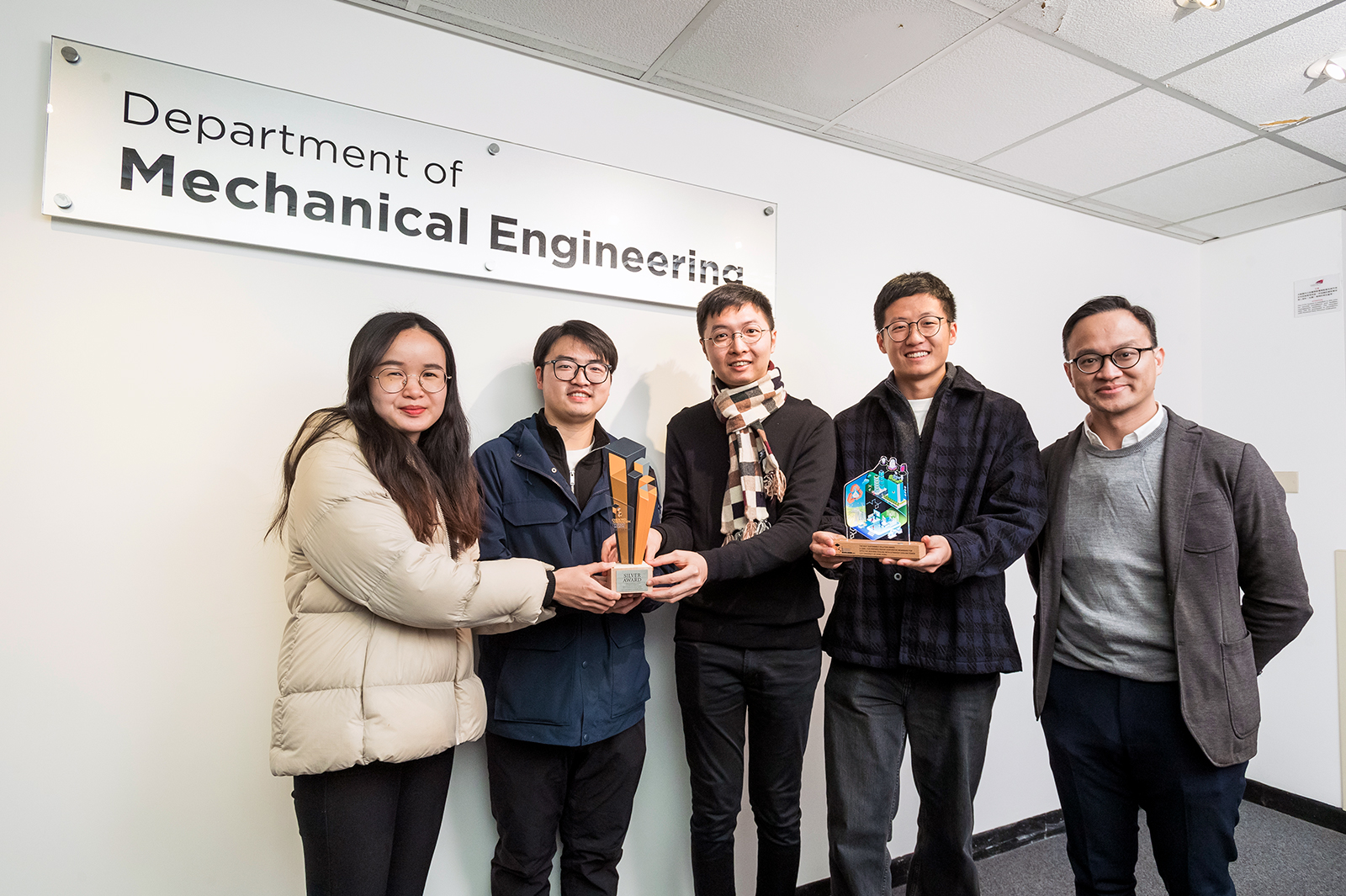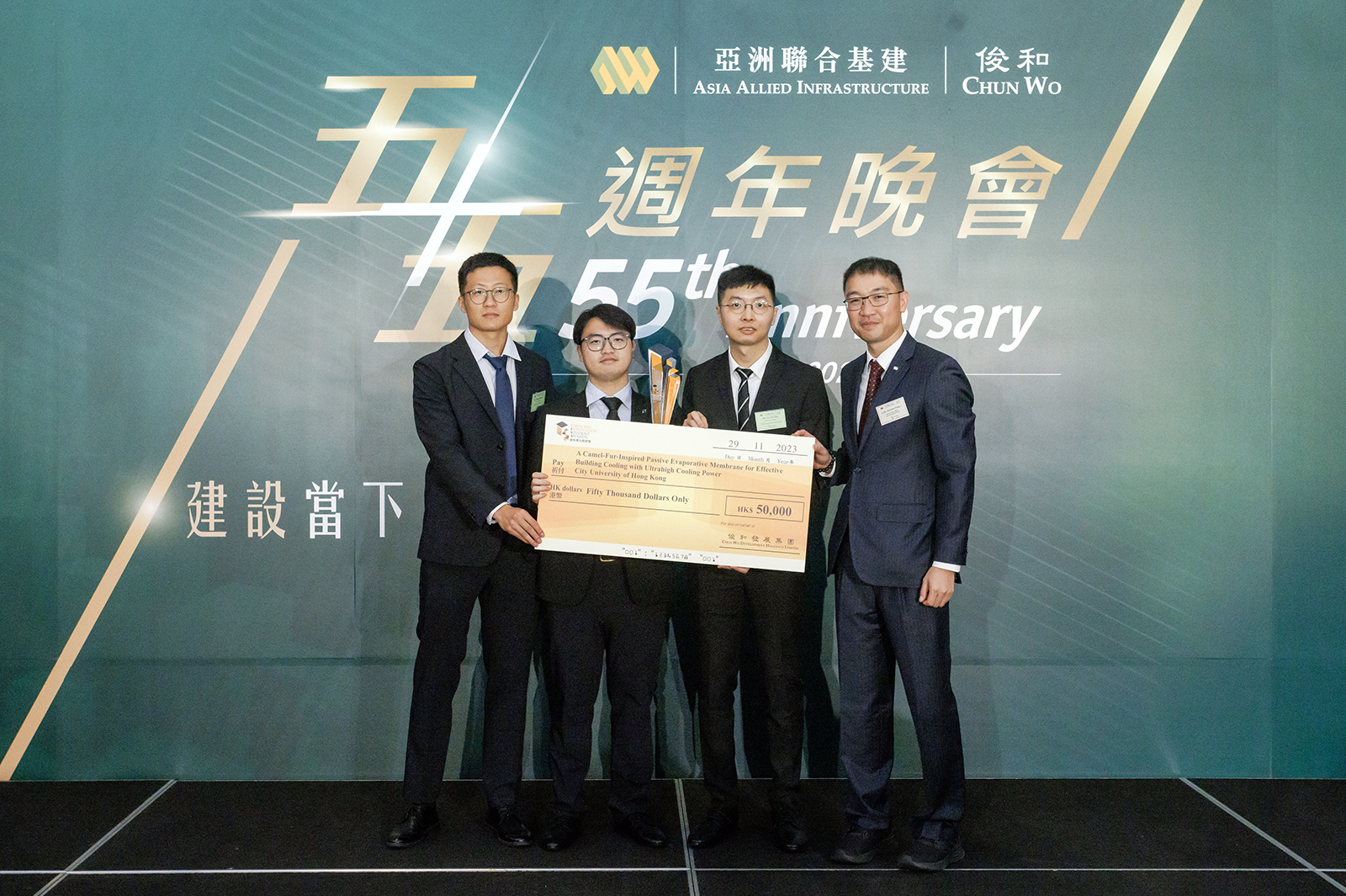
A research team comprising three PhD students from City University of Hong Kong (CityU) won a Silver Award and the Best Sustainable Solution Award at the 3rd Chun Wo Innovation Student Awards with their novel Camel-Fur-Inspired Passive Sorbent Cooler System (CPSC system).
Lo Wai-kin and Zhang Zhenwen, PhD students in the Department of Mechanical Engineering, and Xu Qili, a PhD student in the School of Energy and Environment, designed the CPSC system to help mitigate global warming and climate change due to increasing demand for cooling and electricity, which exacerbates greenhouse gas emissions.

The CPSC system was inspired by the way in which camels adapt in the desert, periodically absorbing moisture from the air at night and releasing the stored water during the day for cooling.
The design has ultra-passive cooling performance, as the average cooling power of the CPSC system can reach up to 630 W/m2, which is almost four times that in the classical radiative-cooling approach. Moreover, unlike the radiative-cooling approach, long-time usage, material aging and moisture condensation will not affect the performance of the CPSC system.
The team expects the CPSC system to provide cooling for buildings, electronic devices and food preservation, providing an effective way to reduce energy consumption for cooling and reduce carbon emissions.

“There is also high potential for applying the CPSC system in Modular Integrated Construction (MiC) buildings, especially in Hong Kong and the rest of the Greater Bay Area,” said Lo. “We will continue to work on sustainable development and focus more on the energy field in the future to try to come up with new ways to obtain clean energy in a cheaper, more environmentally friendly way.”
The research has been supervised by Professor Steven Wang, Associate Vice-President (Resources Planning) and Professor from Department of Mechanical Engineering and the School of Energy and Environment, and Dr Lin Wenzhu, postdoctoral fellow from the Department of Mechanical Engineering, at CityU.
In addition, one CityU research team won a Bronze Award and another team collaborated with The Hong Kong University of Science and Technology won the Best Social Impact Award with their projects, Eco-brick: Used engine oil-enhanced low-carbon lightweight wall partition brick, and Food-Waste-to Energy (H2) using Microbial Electrolysis Call (MEC), respectively, at the 3rd Chun Wo Innovation Student Awards.